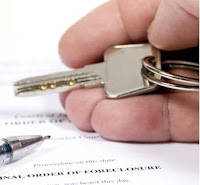Buying Distressed Properties - Part 2

Is a distressed property for you? Here are pros and cons of buying one: Advantages of Buying a Distressed Property First, you'll be dealing with a highly motivated seller – either a bank in the case of a foreclosure, or in a short sale, sellers who are in financial trouble and very interested in getting out of a mortgage they can no longer afford. These types of sales take much of the emotion out of the process. You won't be insulting anybody, for instance, if you make an offer that's lower than the asking price. (That's not to say that the low offer will necessarily be accepted, of course.) Lenders are extremely interested in getting these homes sold and off the liability side of their balance sheets. Many foreclosed properties can be purchased for only a percentage of what they would have commanded five years ago. (This situation is beginning to change, though; bidding wars are breaking out on some foreclosed properties these days, especially those that are moderately





